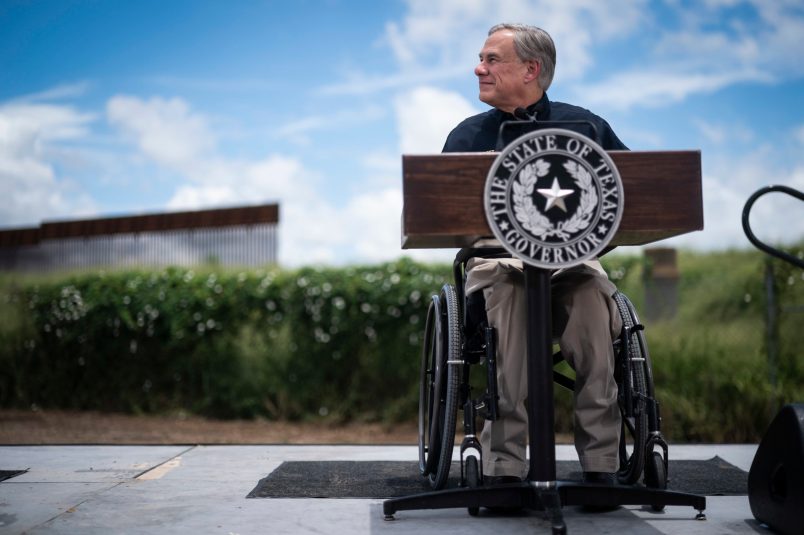The last contract that the state of Texas signed for its state-funded version of Trump’s border wall was for a cool $137.3 million.
And until the state legislature commits more funding to Gov. Greg Abbott (R)’s wall-building campaign, that will be it.
But there’s a question lurking beneath the massive infrastructure spend: Texas is paying the builders, but does it have a place to build?
It seems like a basic question, but it’s far from clear that Abbott — acting to build the wall via the Texas Facilities Commission — will be able to secure the land needed to construct the wall. The Trump administration was able to make use of eminent domain to secure land parcels for the wall that it failed to built. Abbott, however, has not invoked that for his project.
Instead, officials with the Texas Facilities Commission, a state agency usually responsible for building and maintaining government office buildings and parking lots, have said in public hearings that the state is in the process of persuading landowners to grant easements.
Michael Novak, the agency’s executive director, said in July that the state was “working with” roughly 150 landowners to receive access and build rights. But whether the state will be able to secure land easements granting them permission to build out wall for contracts that the state has already signed remains unclear.
At a February hearing, officials described securing the easements as the “most significant challenge” to the project, for which $878 million in contracts have been signed for around 40 miles of wall.
That 40 miles, officials said at the February hearing, constituted 190 separate easements, with 166 offers made and 56 either closed “or in the process of closing.”
So far, Texas has managed to build 1.7 miles of wall on state-owned land.
Abbott has trumpeted that segment as a victory, posing in front of it at a press conference last month. A state website dedicated to the wall casts it as a necessary counter to Biden’s immigration policies.
“While securing the border is the federal government’s responsibility, Texas will not sit idly by as this crisis grows,” Abbott says in the statement.
Failing to secure easements leaves the fate of the wall project unclear.
Charles Tiefer, a law professor at the University of Baltimore and an expert in public procurement, told TPM last week that the sequencing of signing construction contracts without having land secured on which to build was unusual.
“This bears no resemblance whatsoever to a bonafide construction project,” he said.
Ricardo de Anda, a Rio Grande Valley landowner and attorney whose ranch abuts the U.S.-Mexico border, told TPM that he had no intention to sign an easement deal. He added that he and other local landowners were trying to persuade others to sign “conservation easements,” which would add an obstacle to the state’s attempt to build the wall while giving ranchers a tax break.
“Our mission is is to protect private property rights, and that means protecting the land that we’re stewards of,” he said. “And that also means keeping the government’s hands off of private lands.”
Some local landowners have acquiesced.
The owner of Faith Ranch, a land parcel near de Anda’s, reportedly sold permanent land rights for the wall for $1.5 million.
And at a total of 40 miles of wall currently signed for under construction contracts, it’s not clear that holdouts like de Anda could make a big difference.
The Texas Facilities Commission said in January that it needs more funding from the state legislature to sign more construction contracts. TPM reported on Tuesday that state lawmakers are eying another $1 billion for that effort.






